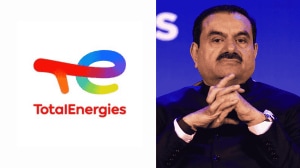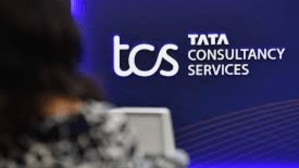Johns Hopkins University has now established the Johns Hopkins India Institute, recently renamed as Gupta-Klinsky India Institute, in India. Researchers at the prestigious University have been engaged in game-changing research and operations in the country since the 1930s. Now, with an India-specific multidisciplinary entity, the varsity plans to “leverage” its experience and expertise in the country to expand education- and health-related impacts internationally. Dr. Amita Gupta, Co-Chair Gupta-Klinsky India Institute (GKII) and Chief of Infectious Disease Division, Johns Hopkins School of Medicine talked to Financial Express.com about the objective of this new institute, its influence, and role in the country’s healthcare system, and COVID-19 among others.
Watch video | If We Can Find Solutions to India’s Problem, We Can Solve Global Issues: Dr. Amita Gupta
On why the Johns Hopkins India Institute was renamed as Gupta-Klinsky India Institute (GKII), Dr. Gupta told Financial Express.com: “It was done to honour two families: noted businessmen and philanthropists who have donated a substantial amount of funds to take us to the next level. The two families are Raj and Kamala Gupta and Steven Klinsky and his partner Maureen Sherry. Both families made a joint contribution of 10 million dollars to help us launch.”
Dr. Gupta emphasised that with this new institute they want to bring out the best of Hopkins and the best of India to benefit the world. “This new phase will benefit the world and the society through cutting-edge, multi-disciplinary, research, policy, and practice collaboration. We know that students, faculties and public and private partners on both sides are very interested in creating new opportunities to address challenging problems not only those that India and US face but the world.”
Dr. Gupta who is a renowned expert in the global treatment, prevention, and control of diseases such as acquired immunodeficiency syndrome (AIDS) and tuberculosis (TB) also said that the global pandemic has highlighted that the infectious diseases are not going away. “We have new emerging infections and old threats such as tuberculosis that continue to need new solutions. So, we want to create new opportunities, lower barriers for collaborations, and advance research practice and education and training of social good.”
She also pointed out that like other healthcare systems, India’s health sector is also complex and multi-faceted. “What I have learned is that you need frugal solutions. You cannot have expensive solutions and that’s very important. We definitely need simple, easy-to-use, near the point of care. When you have such a large population you need the biggest bank for the biggest buck.”
According to Dr. Gupta, this institute has a lot of opportunities for Indian public health researchers and STEM students. “India has an amazing talent pool and we very much want to collaborate with them. So, Hopkins and an Indian institute will come together and will propose a project and we are hoping that the project will fall in one of five areas which include: Infectious Diseases, Maternal-Child Healthcare, Health system strengthening, Artificial Intelligence and Data Science for social good, and Climate Change. These are our priority areas that sort of align with the priorities of both countries. By seed-funding these groups to sort of come together and pitch their ideas we are really hoping to support new ways of solving some of these big challenges.”
In India prevalence of diseases like Diabetes, Tuberculosis and several genetic disorders are highest in the world. On how the institute can manage and address this prevalence, Dr, Gupta said: “It’s about very strong partnership. Hopkins working with the best minds in STEM in India and is already working on this. For example, when we look at a new TB treatment, we recently completed a clinical trial in which the treatment of a child can be done in four months instead of six. Suppose, what vaccines should a child take if they miss their routine immunisation? So we are working on how to protect the child in the best possible ways. We are also working on ways to re-engineer ways of education. We also launching a new programme for engineers to do more biomedical research.”
Dr. Gupta believes: “If we can find solutions for India, then we can find solutions for the world.” According to her, the country is in many ways the perfect place for research as there are bright minds, complex solutions needed in which one needs to find cheap solutions that can reach a lot of people.
Dr. Gupta also highlighted that there is a need to recognise the importance of long-term investments in public health, science, and partnerships and realise that the countries are inter-dependent on each other.
“I am a glass-half-full type of person. So I feel we have learned a lot and we have a lot more that we can do together. We can be stronger by being together. Hopkins-India relationship is just a one piece of the pie but I am looking forward to our countries working together to address bigger problems and solving them,” she added.








